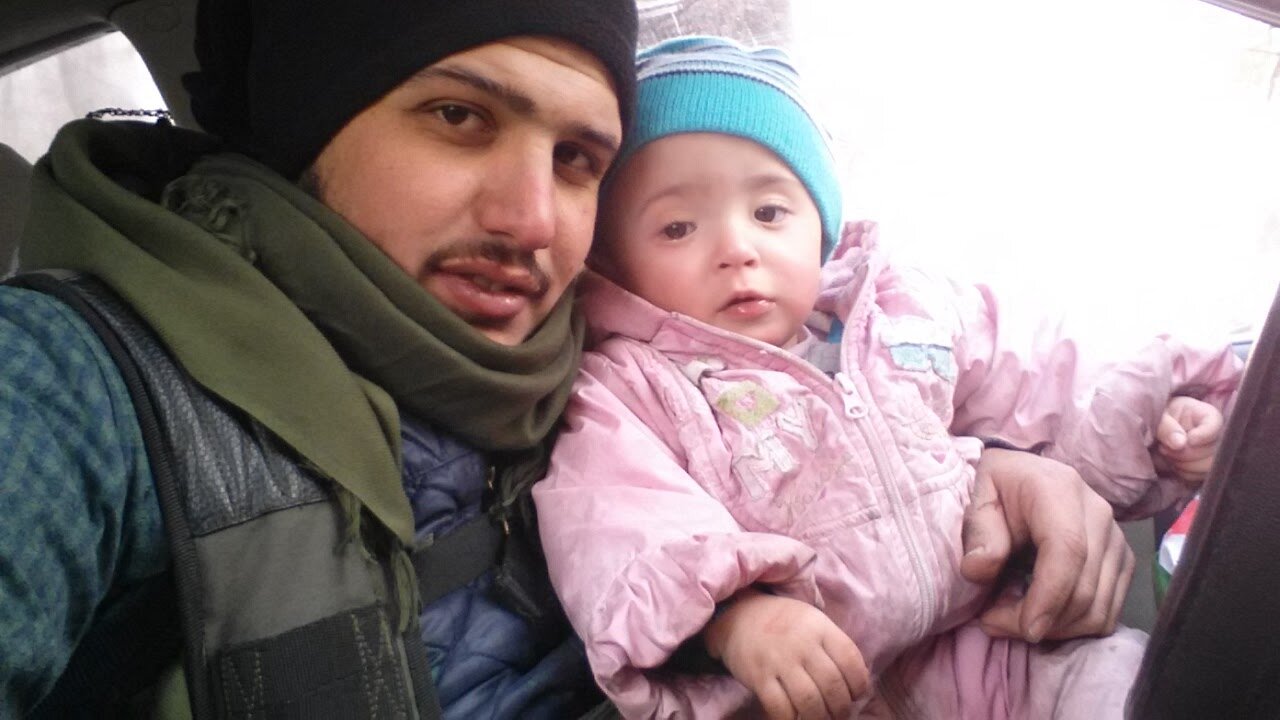Nabil’s Story: I hope everyone who sees For Sama will help us tell the whole story
So many of our colleagues and friends, who were such a big part of our lives, were also a big part of For Sama. We want to share some familiar faces from the film with you: where they are now, their memories of Aleppo and what they hope For Sama can share to the world about Syria.
Here’s Nabil’s story...
I am Nabil Al-Sheikh Omar and I now live in Aleppo’s northern country-side in Syria. I’m currently volunteering as a medical case officer with Molham’s team in Aleppo’s northern countryside. I also work as a nurse with the Independent Doctors Association.
In East Aleppo, I was a nurse in Al-Quds hospital. This was my home and the staff were my little family.
I remember I was sleeping in a building adjacent to the hospital when it got hit on 27 April 2016. I was woken by the sound of the explosion and I went down to see cars burning in front of the hospital and injured bodies all over the place. I tried to find a way to enter the hospital through some crack in the ruined building. On top of that there was no sound coming from inside the hospital. All of that left me completely devastated.
On the very first day of the last attack on Aleppo, an airstrike hit and fifteen minutes later the injuries started to reach the hospital. I asked the first person I saw, “Where did the bomb land?”, only to realise that it was so far from us, it could mean that we were the last hospital standing. This day started with only 10 injured people but ended with a number of around 400, and left a river of blood in the hospital. We were expecting to be hit at any moment because all of the other hospitals were bombed out of service in less than 24 hours. A couple of days later, we were on a balcony where we used to hear the sirens of ambulances. Instead of that, we heard a warplane heading towards us, we heard the whistle of the bomb. Moments later, someone came in and said an exploding barrel had landed nearby and the people who were fortifying the hospital got hit and died. At the very same moment, we heard another barrel landing, we were completely terrified, expecting a barrel to hit us at any moment.
One day, we received word that our hospital was going to be destroyed by warplanes. In seconds, we decided to evacuate the wounded, so I left the hospital with about 60 injured to a nearby building. That building had no capacity to host the injured, the building was cold and had no heating tools of any kind, but in under an hour we made it as much of a shelter as possible.
In Aleppo there were hard moments and also a lot of beautiful ones. The freedom bus and the agriculture project were very beautiful, especially because I was working nights as a nurse and during the day as a farmer.
There are some moments that I’ll never forget. We were all afraid and discussed who’s going to leave first. Hamza was looking at me because I was the youngest, so I spoke first and said I’m a nurse I won’t leave - I can help if something happens. Then my brother said he won’t leave me behind, so we all agreed that we wouldn’t leave until all of the wounded had left. Then we would leave together. We stayed together in Hamza and Waad’s room until the end.
One of my friends who was with me in Aleppo, but who I didn’t meet until after we left, saw the film and told me, “I lived all of these events but Waad managed to recap all of these memories in two hours”.
What we lived through is always repeated in Idlib and Aleppo's suburbs, and every time something like this happens we remember what we lived through and stand helpless as we can’t do anything. I hope that everyone who watches the film and sees the whole picture, will amplify the people’s voice and spread the news about how the people of Idlib are in danger of the regime, and at the same time of Hay’at Tahrir Al-Sham (HTS). I hope that everyone does whatever they can so these families can live safely. And I hope that everyone who sees the film will help us tell the whole story.

